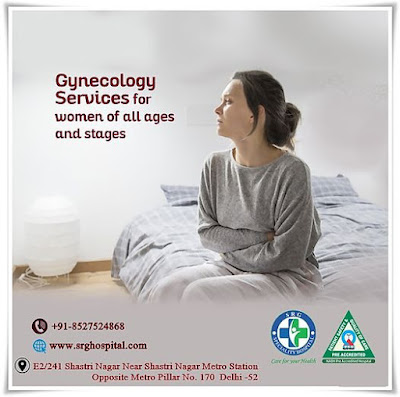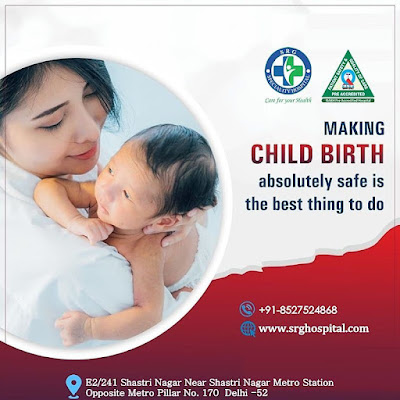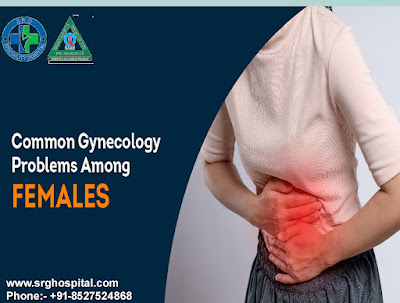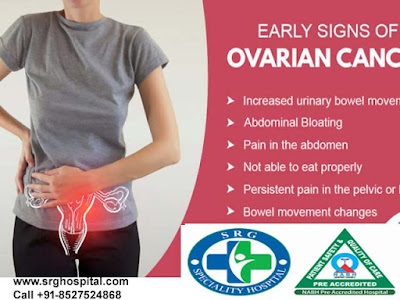What Are The Common Women’s Health Issues In India?
Urinary incontinence, unpleasant monthly cramps, and irregular menstrual periods are frequent problems that many women face. But, since there are medical and surgical intervention techniques that can help ease or cure these bothersome symptoms, you don't have to put up with them.
Your gynaecologist should be
consulted if you are suffering from severe stomach discomfort or heavy or
continuous bleeding during or between periods. These symptoms could indicate a
more serious health concern.
Let's examine the causes,
signs, and treatments of some of the most prevalent gynaecological disorders in
more detail.
Menstrual
Disorders Of Women
Endometriosis, endometrial
polyps, endometrial hyperplasia or malignancy, polycystic ovarian syndrome, and
abnormal uterine bleeding are examples of menstrual problems. Menstrual
bleeding that is severe or protracted, bleeding in between periods or after sexual
activity, and particularly excruciating cramping are possible symptoms.
Medical therapies include
non-steroid anti-inflammatory medicines (NSAIDs), prescription pills, vaginal
rings or patches, progesterone implants, or progesterone intrauterine devices
(IUDs), depending on the individual menstrual condition. Surgical alternatives
frequently involve minimally invasive techniques including hysterectomy, which
involves removing the uterus, endometrial ablation, which involves removing a
thin layer of tissue lining the uterus, and hysteroscopy, which involves
inspecting the uterine cavity.
Pelvic
Floor Prolapse in India
This disease causes weak
pelvic organs, including the bladder, rectum, and uterus, to sag. This can
cause persistent pain, a pressure-like feeling in the vagina or rectum, a bulge
that protrudes into or out of the vagina, irritation of the vagina, difficulty
starting or finishing bowel movements, and/or the inability to enjoy sexual
activity.
Physical therapy and the use
of a pessary, a device that is worn inside the vagina to provide support and
ease symptoms, are two nonsurgical treatment options for pelvic floor prolapse.
Minimally invasive abdominal surgery, laparoscopic surgery, and vaginal surgery
are surgical options for treating prolapse.
Cervical
Dysplasia
This is a human
papillomavirus-related precancerous disease of the cervix (HPV). Since the
illness typically shows no symptoms, all women should get yearly gynaecological
exams and, after age 21, routine Pap screenings. Your Best Gynecologist in Shastri Nagar might suggest a diagnostic
colposcopy to check your cervix if suspicious cells are seen. If a woman gets
the HPV vaccine, which is advised for women between the ages of 9 and 26, she
can avoid cervical dysplasia.
Uterine
Fibroids
During a woman's
reproductive years, these benign tumours, also called leiomyomas or myomas, may
develop in the uterus. Fibrioids come in a variety of forms. Submucosal
fibroids develop beneath the uterine lining, warping the cavity's typical shape
there. Subserosal fibroids develop outside the uterus, where they may push on
nearby organs, while intramural fibroids occur inside the uterine wall.
Severe menstrual pain,
abdominal pressure or bulging, frequent urination or retention because of
strain on the bladder, lower back pain, pain during sexual activity, anaemia
from excessive bleeding, infertility, and problems getting pregnant are all
signs of uterine fibroids.
For those with mild
symptoms, nonsurgical treatment options include over-the-counter painkillers,
birth control pills to help shrink the fibroids, and a minimally invasive
procedure called Uterine Fibroid Embolisation (UFE), which involves injecting
embolising agents to cut off the blood supply that feeds the growth of the
fibroids.
Surgical removal of fibroids
is also possible with myomectomy. Or a hysterectomy is another option if the
big fibroids significantly impair your quality of life.
Urinary
Incontinence
Urge incontinence, which
occurs when a strong urge to urinate occurs suddenly, or stress incontinence,
which occurs during physical exertion, can be a costly and embarrassing health
problem. It is a prevalent ailment in women over 35 and may be brought on by a
change in the surrounding muscles and nerves or a urinary tract infection. In
any event, women experiencing urine incontinence may benefit from physical
activity, medication, or, in certain cases, surgery.
Women’s
Health Experts in India
Best Gynecologist in Shastri
Nagar can offer you complete preventive, diagnostic, and advanced care,
regardless of the type of gynaecological condition you may have. Depending on
your particular problem, our highly skilled surgeons specialise in treating a
wide range of women's health conditions with the most cutting-edge, minimally
invasive techniques available.










Comments
Post a Comment